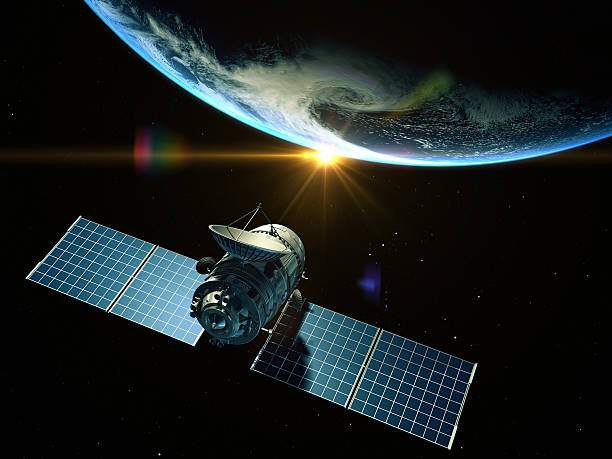What Is Sattelitter and How Does It Work?

Introduction to Sattelitter
Sattelitter is a revolutionary concept that merges satellite communication with decentralized technologies. Unlike traditional satellites, it functions as a smart and autonomous system. It aims to enhance global communication, surveillance, and connectivity. With blockchain integration, it ensures transparency, speed, and low operational costs.
The Core Concept of Sattelitter
Sattelitter combines orbital systems with advanced computing and peer-to-peer networks. It operates outside traditional ground-based infrastructure. By leveraging artificial intelligence and edge computing, Sattelitter performs data processing in orbit.
This concept supports secure data transmission across various industries. From environmental monitoring to defense communication, its utility is vast.
How Does Sattelitter Work?
Sattelitter operates through a combination of satellite hardware, software protocols, and blockchain nodes. Here’s a simple breakdown:
- Launch Phase: Miniature satellites (CubeSats or NanoSats) are deployed into low Earth orbit.
- Connection Setup: Satellites interconnect through laser links and radio frequencies.
- Data Exchange: Information is encrypted and transmitted using decentralized networks.
- Ground Interaction: Limited interaction with ground stations is required, reducing latency.
- Autonomous Processing: AI processes and filters relevant data directly in space.
This system bypasses centralized control and delivers rapid, secure communication.
Key Features of Sattelitter
Decentralized Infrastructure
Unlike conventional satellites, Sattelitter doesn’t rely on a central server. Its blockchain foundation makes data immutable and hack-resistant.
Low Latency Communication
By reducing the number of intermediaries, it shortens response time significantly. Real-time updates and seamless transmissions are its core advantages.
Enhanced Security
Every transaction is recorded on a distributed ledger. This ensures data integrity, transparency, and traceability.
Edge Computing in Orbit
Edge computing allows it to process information before reaching Earth. This feature minimizes bandwidth use and enhances operational speed.
Applications of Sattelitter
Disaster Response and Management
Sattelitter plays a key role in crisis situations. It delivers real-time updates, satellite imagery, and communication even in remote areas.
Agriculture and Environmental Monitoring
It helps monitor climate, crop health, deforestation, and soil quality. With this data, governments and farmers make better decisions.
Defense and Surveillance
It offers encrypted military communication and global surveillance. Autonomous systems reduce the need for human control.
Global Internet Access
Remote areas benefit from constant, stable internet access. It closes the digital divide in underserved regions.
Financial and IoT Networks
Sattelitter secures financial transactions in remote regions. It also powers smart devices through satellite-based IoT connectivity.
Sattelitter vs Traditional Satellites
| Feature | Sattelitter | Traditional Satellite |
|---|---|---|
| Data Processing | Onboard Edge AI | Ground Station Dependent |
| Security | Blockchain Based | Centralized Encryption |
| Latency | Ultra-low | High |
| Infrastructure | Decentralized | Centralized |
| Cost | Economical (CubeSats) | Expensive (Large Satellites) |
Sattelitter clearly provides a smarter, faster, and cheaper alternative.
Challenges and Limitations
Despite its benefits, Sattelitter faces challenges like:
- Regulatory Approvals: International laws are still catching up with space blockchain.
- Collision Risks: Orbit congestion increases the chance of satellite collisions.
- Energy Constraints: NanoSats have limited power and lifespan.
However, advancements in solar tech and AI are solving these issues.
Future of Sattelitter Technology
Sattelitter is the future of space-tech and decentralized networking. As AI and blockchain grow, these satellites will dominate communication systems.
Investors and innovators are showing strong interest. Governments, too, are integrating these systems into their digital ecosystems.
Conclusion
Sattelitter is reshaping the way we communicate, share data, and monitor the planet. It blends the power of satellites with decentralized intelligence. From real-time disaster alerts to secure military operations, its impact is boundless.
Read Also: What is Kiolopobgofit?




